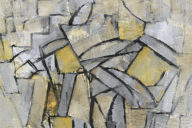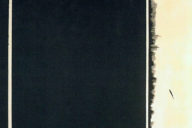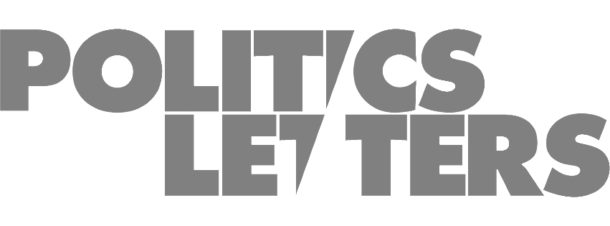1972, the year he gave hanlf the money from his Booker Prize to the Black Panthers and smashed the conventions both of television and of art history forever with the BBC series (and book) “Ways of Seeing,” was beyond any doubt the single biggest moment in John Berger’s long and charismatically eccentric career. When Berger died in January 2017 at the age of 90, he had not made the same sort of cultural headlines for some time. It is a tribute, in the most literal sense, to the staying power of Berger’s work that the authors represented in this cluster were nonetheless willing, and on short notice, to write up their reflections on it and him for a conference, sponsored jointly by Columbia University and by Public Books, held in his honor at the end of March. The conference did not feel like the end of anything.
Given the urgency of the issues to which Berger devoted his energies as a creator of largely unclassifiable works of worldly observation and creative synthesis, it is only fitting that, rather than offer hagiography, these essays prefer to continue Berger’s labors, speaking as critically as they need to speak, committed less to him than to a common cause. But they are, of course, also committed to him. What was it about Berger that inspired and inspires such commitment? Geoff Dyer, who gave one keynote at the conference, suggested an answer when he remarked that Berger writes without irony. To write without irony is to write without relaxing for an instant your strenuous attention to the riskiest and most exhausting of questions, “So what?”
Teju Cole, who gave the other keynote, suggested another answer. (Neither keynote is represented here. One hopes that, living from their writing, as Berger did, Cole and Dyer will manage to get themselves paid for the elegant talks they so generously prepared. This is not something that politicsslashletters can do for its authors, at least as yet.) Cole’s answer is a bit more indirect. In his photography column in the New York Times Magazine for Sunday March 26th, he wrote about photographs of labor, especially though not exclusively black labor. As usual, he picks out a detail that most of us would have missed. “The poor sometimes have bags, but throughout history the very poorest have had to make do with sacks.” Sacks in photos of the poor: it’s exactly the sort of thing that John Berger would notice. And as it happens, Berger is quoted in Cole’s piece. He’s quoted in defense of narrative–ambivalent defense. “When we look at a star-filled night sky, we are able to tell stories about it only by organizing the stars into constellations.” I call this defense of narrative ambivalent because it is also a reminder that stars don’t actually come in constellations. The poor, on the other hand, really do come with sacks, and they really do work very hard.
The trilogy of peasant-centered books that began with the novel Pig Earth in 1979 and that preoccupied Berger for 17 years was called “Into Their Labors.” The reference is to John 4:38: “others have labored, and you are entered into their labors.” Seeing himself as a beneficiary of the labor of others (“have benefitted from” is another translation of “are entered into”), and as a beneficiary even when he entered into those labors by writing about them, gathering up their experiences in sacks of his own fabrication, may not be the magical key to Berger’s writing, but it is certainly a motif that ties him and Teju Cole together, and it is also a possible explanation for the sense Berger always gives off of being (or at least trying to be) absolutely grounded. Perhaps absolute grounding is too much to ask, or the wrong thing. I can see why one might prefer not to raise the question. But there is a special kind of gratitude that goes out to those, like Berger, who are somehow never put off by it.
In the essays that follow, the authors share only a commitment to Berger and to essentials. Novelist Siddhartha Deb, summing Berger up in the phrase “A Tax on Shivering,” introduces highpoints of his work for those who have not yet made its acquaintance while also offering a list of ways in which we have still not caught up to him. Art historian and cultural critic Jonathan Crary makes a Bergerian gesture by reminding the audience that it is sitting in the building that once housed the Manhattan Project, then going on to recall the topicality of Berger’s attention to aerial bombardment as state terror as well as his refusal of left melancholy. Writer Annie Wyman, who has published on Berger in n+1, explores the “conspiracy of two” as a key to Berger’s embrace of storytelling and the ineradicability of desire and sensuality in his version of political commitment. Writer Ratik Asokan looks through Berger’s art criticism to find, at its base, the question of what (really) matters. Taking sly side glances at Walter Benjamin and the gildedness of the Trump lifestyle, feminist film theorist Jane Gaines contrasts Berger’s theory of gendered spectatorship with that of Laura Mulvey, tracing Mulvey’s back to Sartre but Berger’s, refreshingly, to the distinct Hegelianism of Simone de Beauvoir. And historian Barnaby Raine runs through some of Berger’s other commitments, besides his unflinching commitment Marxism: to humanism, to migrants anad refugees, to Palestine, and to hope.
The issue also features three ambitious statements about politics in three places: the US, Palestine, and Spain. Our own Jim Livingston, in dialogue with fellow intellectual historian Andrew Hartman, tries to broker a reconciliation between liberalism and the Left, offering in the process a tantalizing view of the tradition behind an anti-statist socialism, American style. Noted Palestinian writer Ibrahim Nasrallah (born in a refugee camp in 1954) here presents a slice of his multi-volume project Palestine Comedies, which translator Nora Parr describes as “the first novelistic endeavor by a Palestinian author to tell the story of Palestine.” “Under the Midmorning Sun” lays out the devious and distorting effects of Israel’s Occupation on the artist who dares try to represent the situation of his fellow Palestinians, and on Palestinian politics in general. John McClure offers an update on the ever-surprising ins-and-outs of the Spanish Left and its prospects, somehow still flourishing, of achieving a workable alliance.
Last but by no means least, we offer two podcast interviews, to be savored at your leisure: one with Jessa Crispin, founder of Bookslut and author of Why I Am Not a Feminist: A Feminist Manifesto, and one with Laura Kipnis, author most recently of Unwanted Advances: Sexual Paranoia Comes to Campus.
Bruce Robbins






1 Comment
[…] Introduction to “John Berger: A Retrospective,” special issue, Politics/Letters. […]